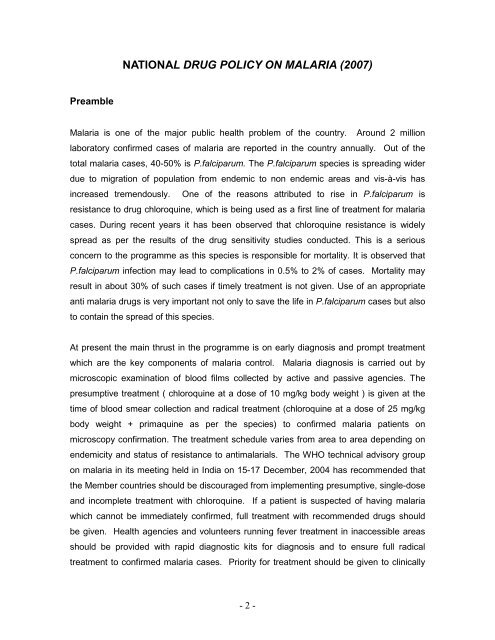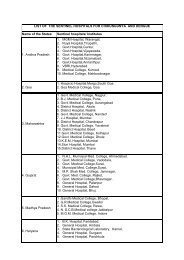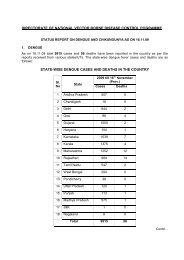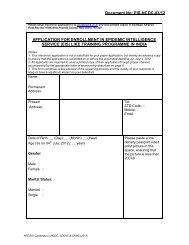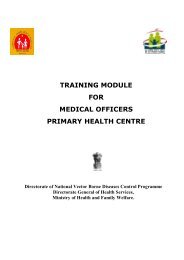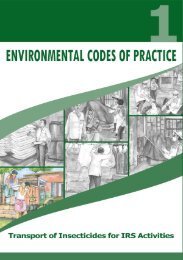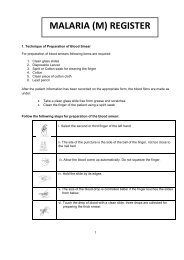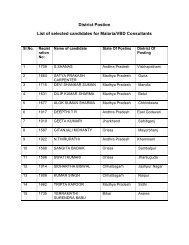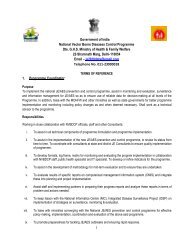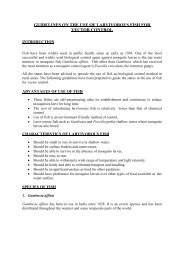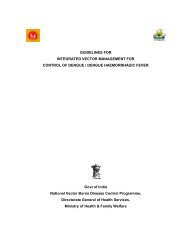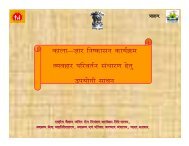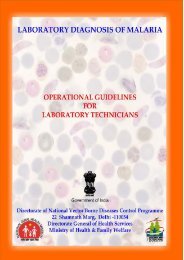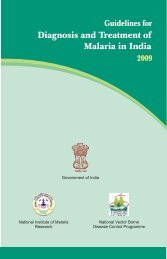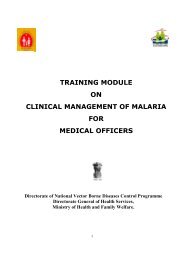MALARIA DRUG POLICY (2007) - NVBDCP
MALARIA DRUG POLICY (2007) - NVBDCP
MALARIA DRUG POLICY (2007) - NVBDCP
Create successful ePaper yourself
Turn your PDF publications into a flip-book with our unique Google optimized e-Paper software.
NATIONAL <strong>DRUG</strong> <strong>POLICY</strong> ON <strong>MALARIA</strong> (<strong>2007</strong>)PreambleMalaria is one of the major public health problem of the country. Around 2 millionlaboratory confirmed cases of malaria are reported in the country annually. Out of thetotal malaria cases, 40-50% is P.falciparum. The P.falciparum species is spreading widerdue to migration of population from endemic to non endemic areas and vis-à-vis hasincreased tremendously. One of the reasons attributed to rise in P.falciparum isresistance to drug chloroquine, which is being used as a first line of treatment for malariacases. During recent years it has been observed that chloroquine resistance is widelyspread as per the results of the drug sensitivity studies conducted. This is a seriousconcern to the programme as this species is responsible for mortality. It is observed thatP.falciparum infection may lead to complications in 0.5% to 2% of cases. Mortality mayresult in about 30% of such cases if timely treatment is not given. Use of an appropriateanti malaria drugs is very important not only to save the life in P.falciparum cases but alsoto contain the spread of this species.At present the main thrust in the programme is on early diagnosis and prompt treatmentwhich are the key components of malaria control. Malaria diagnosis is carried out bymicroscopic examination of blood films collected by active and passive agencies. Thepresumptive treatment ( chloroquine at a dose of 10 mg/kg body weight ) is given at thetime of blood smear collection and radical treatment (chloroquine at a dose of 25 mg/kgbody weight + primaquine as per the species) to confirmed malaria patients onmicroscopy confirmation. The treatment schedule varies from area to area depending onendemicity and status of resistance to antimalarials. The WHO technical advisory groupon malaria in its meeting held in India on 15-17 December, 2004 has recommended thatthe Member countries should be discouraged from implementing presumptive, single-doseand incomplete treatment with chloroquine. If a patient is suspected of having malariawhich cannot be immediately confirmed, full treatment with recommended drugs shouldbe given. Health agencies and volunteers running fever treatment in inaccessible areasshould be provided with rapid diagnostic kits for diagnosis and to ensure full radicaltreatment to confirmed malaria cases. Priority for treatment should be given to clinically- 2 -


